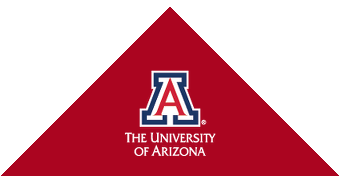The program will be implemented in 16 Tucson Unified School District elementary schools beginning in the 2014-2015 school year.
Approximately 120,000 Arizona children have asthma. Asthma attacks lead to 3,000 hospitalizations each year, costing Arizonans approximately $24 million in direct medical costs.
Overall, the medical costs of children with asthma are double those of children without asthma. The greatest burden of asthma disproportionally falls upon low-income and minority children. One of the most important causes of poor asthma control is limited access to, and inconsistent use of, daily medications such as inhaled corticosteroids.
To address this public health issue, the Mel and Enid Zuckerman College of Public Health at the University of Arizona has partnered with the American Lung Association in Arizona and the Tucson Unified School District to implement a school-based asthma program in selected elementary schools.
[List of participating TUSD elementary schools]
Lead researcher Lynn Gerald, PhD, MSPH, associate dean for research at the UA Zuckerman College of Public Health and a scientist in the Arizona Respiratory Center, has assembled an interdisciplinary team of researchers, doctors and community partners to evaluate the effectiveness and cost-effectiveness of this program. The study, known as the Supervised Asthma Medicine in Schools (SAMS) program, is funded by the National Heart, Lung, and Blood Institute.
“Our schools are strong advocates for child health and are a logical place to reach children with asthma. Providing asthma care in schools makes sense because children with asthma symptoms frequently miss school and may fall behind academically,” said Dr. Gerald.
“My team’s previous research with Alabama elementary schools showed that supervising daily asthma medication at school increased adherence and reduced the number of episodes of poor asthma control,” Dr. Gerald said. “The challenge is to find a way to help these children without over-burdening our schools. Our collaboration with the American Lung Association, Tucson office, will allow a trusted community partner to shoulder some of this burden.”
SAMS will be implemented in 16 TUSD elementary schools beginning in the 2014-2015 school year. Schools will be paired by similar characteristics and then randomized to either an “intervention group,” which will start the program immediately or to a “delayed group,” which will start the intervention in the 2015-2016 school year.
Approximately 10 percent of students are expected to have asthma and be eligible to enroll in the program with parental consent. Students in the program will be provided an asthma action plan, daily asthma medication and quick-relief medication at no cost. Students also will receive the American Lung Association’s award-winning Open Airways in Schools curriculum to strengthen their asthma self-management skills.
Students’ use of the medication, number of asthma symptom days, number of visits to the school’s health office and number of school absences will be used to determine how well the program works.
For the complete list of participating TUSD elementary schools, please visit the College of Public Health website. To speak with the study coordinator, contact Clara Ehrman at csehrman@email.arizona.edu or (520) 621-5439.
The SAMS interdisciplinary team includes Joe Gerald, MD, PhD, a health economist and health outcomes researcher and Aimee Snyder, MPH, and DrPH student at the UA Mel and Enid Zuckerman College of Public Health; Jamie Goodwin, PhD, and Clara Ehrman, BS, BSHS, experienced project managers at the Arizona Respiratory Center; Conrad Clemens, MD, a pediatrician and associate dean for graduate medical education at the UA College of Medicine – Tucson; Mark Brown, MD, a pediatric pulmonary specialist at the Arizona Respiratory Center; Donna Bryson, RN, AE-C, a lung health educator with the American Lung Association in Arizona; Donna Johnson, RN, BSN, Med, TUSD director of school health services; and Nikki Stefan, RN, BSN, TUSD coordinator of school health services.








